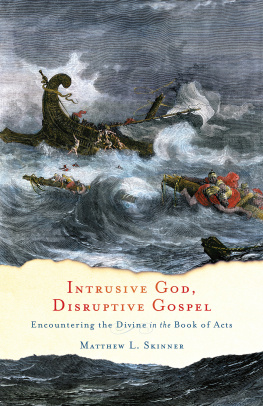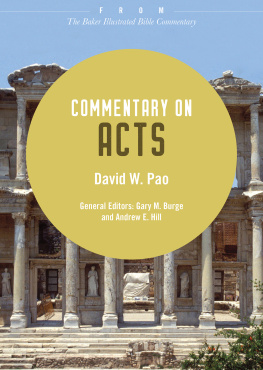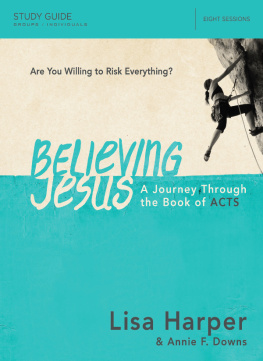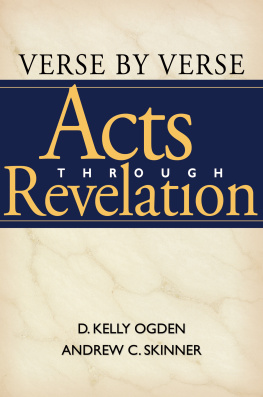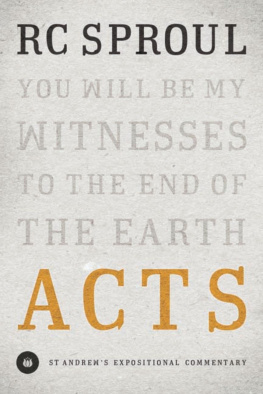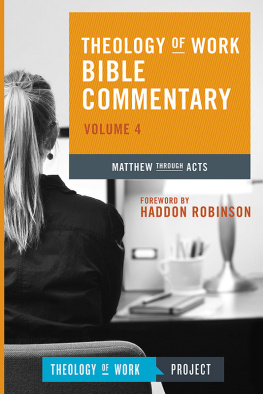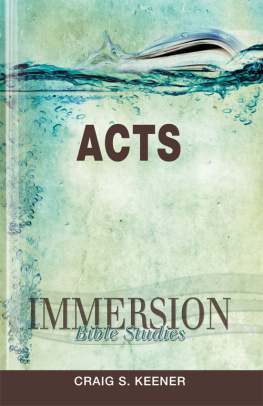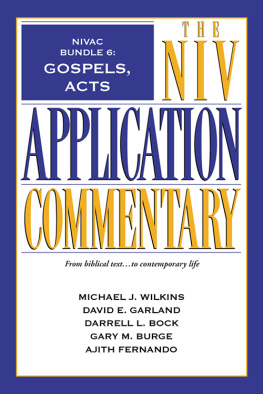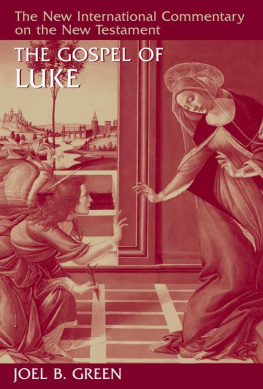2015 by Matthew L. Skinner
P.O. Box 6287, Grand Rapids, MI 49516-6287
www . brazospress .com
All rights reserved. No part of this publication may be reproduced, stored in a retrieval system, or transmitted in any form or by any meansfor example, electronic, photocopy, recordingwithout the prior written permission of the publisher. The only exception is brief quotations in printed reviews.
Library of Congress Cataloging-in-Publication Data is on file at the Library of Congress, Washington, DC.
Scripture quotations are from the New Revised Standard Version of the Bible, copyright 1989, by the Division of Christian Education of the National Council of the Churches of Christ in the United States of America. Used by permission. All rights reserved.
Contents
Cover
Title Page
Copyright Page
Dedication
Preface
Introduction
Road Map: As You Read This Book
Acts 1:111: Waiting to Go
Acts 2:121: Making Sense of Things
Acts 2:2241: Keeping an Old Promise
Road Map: Emerging Realities
Acts 3:1126 and 4:512: The Ultimate Disruption
Acts 4:325:11: Communal Harmony as a Matter of Life or Death
Acts 6:17: Growth Brings Changeand Surprise
Acts 7:5460: Using Violence to Keep God under Control
Road Map: Expansions
Acts 8:425: Spiritual Power, Spiritual Gift, and Spiritual Greed
Acts 8:2640: Absurdly Good News
Acts 9:130: Seeing a Different Reality
Acts 10:111:18: Old Boundaries Obliterated
Acts 12:119: Coming to Our Senses
Road Map: God Is Still Speaking
Acts 13:14: Called and Commissioned
Acts 14:820: Learning to Recognize God
Acts 15:135: Discerning God
Road Map: Very Public Disturbances
Acts 16:940: Battle of the Gods
Acts 17:1634: The Gospel in the Flesh
Acts 18:117: When the Good News Escapes Attention
Acts 18:2419:20: Theres Power in the Name
Acts 19:2141: Far-Reaching Disruptions
Road Map: The Witness Goes to Rome
Acts 21:16: Spirit-Led Disagreement
Acts 22:3023:11: How to Be a Hero
Acts 25:112: The Gospel and the Empire
Acts 2728: Open Horizons
Conclusion
For Further Reading
Subject Index
Scripture Index
Back Cover
Preface
This book explores the Acts of the Apostles (customarily known by the simple title Acts), which appears immediately after the four Gospels in the New Testament. Acts continues the story the Gospels begin, the story of Jesus Christ. More accurately, Acts continues the story told in one of these Gospels in particular, the Gospel according to Luke. The same author wrote both books, making Acts a sequel. In Acts, the story of Jesus moves forward in the experiences of his followersnot all of them, but a few key figures who appear on the narratives stage.
Acts shows very little interest in communicating details about these figures lives. The book devotes much more attention to how their experienceswhat they say, what they do, and what happens to themsay something about who God is and how God has acted and continues to act through the spread of the good news about Jesus Christ.
This book, the one you are reading now, explores Acts. But, like Acts, its interest also reaches further than retelling a story. As with Acts, this book is interested in directing your attention toward God and the good news (the gospel) about what God accomplishes in Jesus Christ. That is, this book explores how Acts depicts God, or how Acts imagines God might be making a difference in the world because of what Jesus did and continues to do. Acts provides a lens through which we might see and consider God.

This book is different from what I usually write. Since I am a biblical scholar, much of my interaction with the Acts of the Apostles involves a good amount of historical analysis, in an effort to uncover what was going on behind and around the story Acts tells and explain how Acts might have spoken to ancient readers in light of their knowledge and circumstances. This book, however, is relatively unconcerned with many aspects of the history behind Acts (why Acts was written, who the author was addressing, what problems Acts was trying to solve or create, and so on). I am more interested in exploring the story Acts tells to us today and how that story prompts us to consider who God is and how God operates.
Those topics interest me because Im deeply curious about how the Bible shapes communities and how it informs and changes our understanding of who God is, what our faith is about, and what is possible in our lives. Acts tells a story about these things, but it is hardly an uncomplicated story. The story is fascinating, and it is determined to present readers with a gospeland a Godthat offers the possibility of new relationships and newfound hope, transforming lives and communities in the process. According to Acts, these transformations constitute part of the salvation God provides.
Acts looks back on transformations and discoveries rooted in the past, but in so doing it holds out hope for future ones too. Throughout this book I reflect on how our own encounters with God might be transformative in their own ways. These are my interpretations, which come from my efforts to learn from Acts and put my learning in conversation with my own life and the lives and perspectives of others.
I teach about Acts often to pastors, students, and congregations. Sometimes I meet people who resonate deeply with the book, finding it consistent with their experiences of a God who is near and active. More frequently, I encounter people who dont know what to do with Acts. Sermons in their churches seldom focus on the book. Some find Acts irredeemably shallow or even off-putting because of its focus on incredible stuff, such as fantastic miracles and daring, almost impossible heroism. Acts often describes easy solutions to problems and questions that, if our own lives are reliable indicators, do not lend themselves to neat and clean resolutions. Our lives and our thinking about God have a complexity that can leave us suspicious about simple answers. With this book I dig deeper into who God is in Acts so that you can better understand what Acts is saying about God and consider the portrait of God in Acts in light of how your own life has shaped your outlook on God. My primary hope is that Ive written a book that helps you see more in Acts and that, as a result, Acts kindles for you deeper reflections and ongoing conversations with other people about who God is and how we know God.

This book is a result of innumerable conversations. Many people helped me write it, and they deserve my recognition.
Beverly Roberts Gaventa has taught me more about Acts than anyone else, which is why I dedicate the book to her. Her insights roam these pages.
Greg Carey first encouraged me to clarify specific ideas that I thought needed to be expressed in a bookthis book. I had just completed a major writing project, and his determination to get me started quickly on my next one provided a creative spark and made me eager to dig in.

